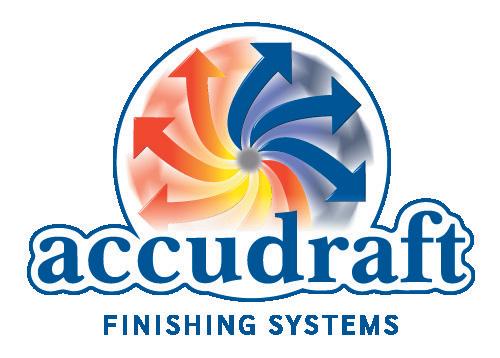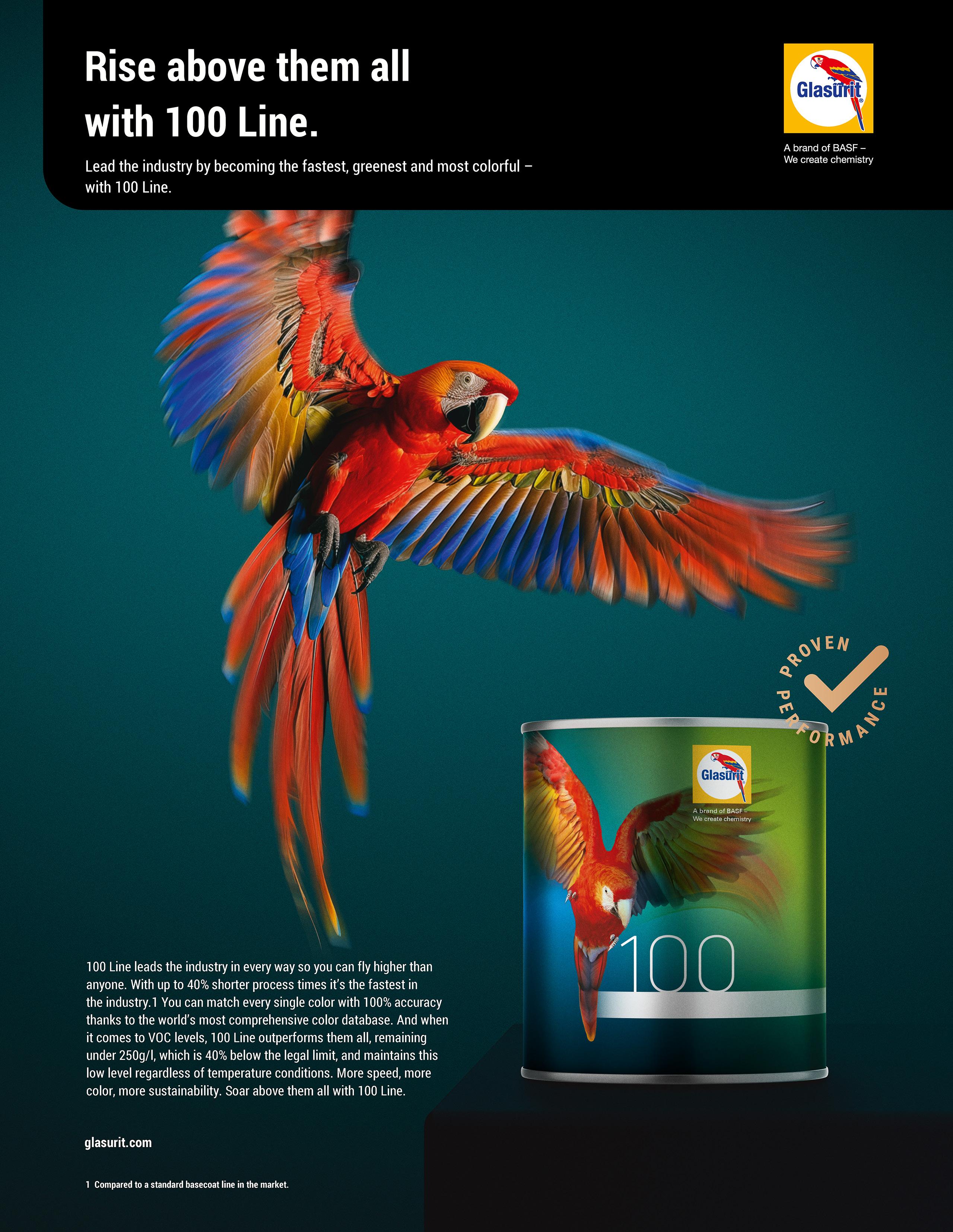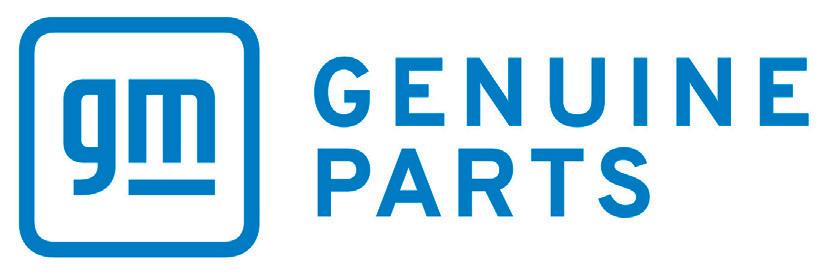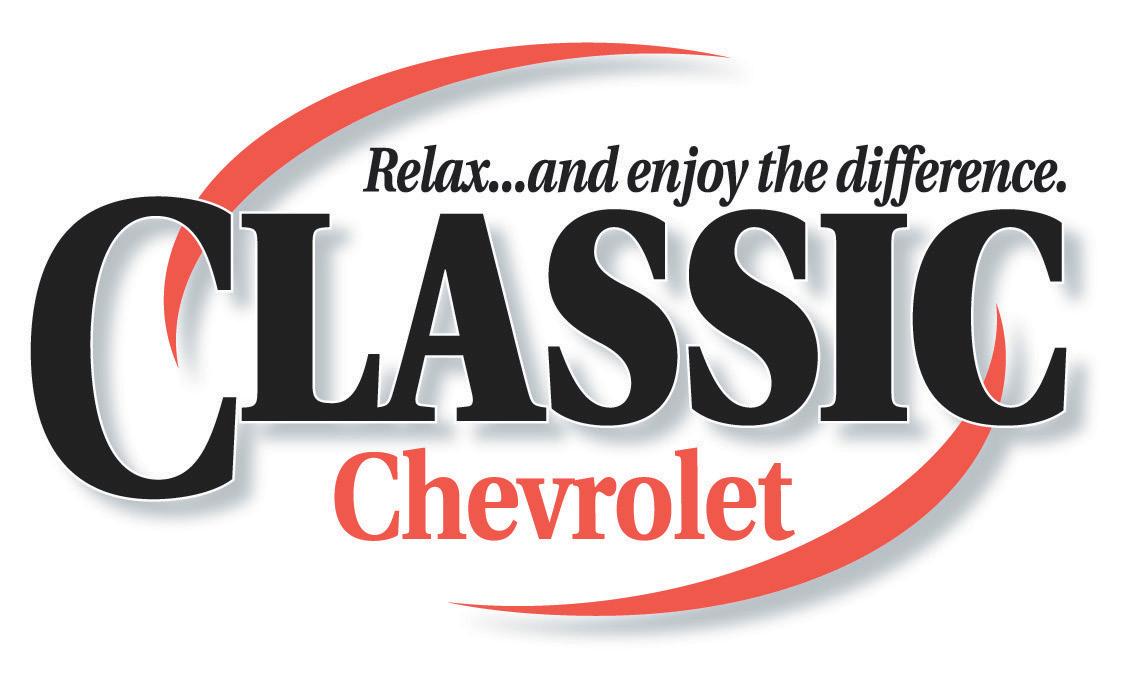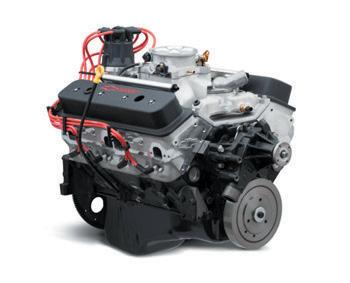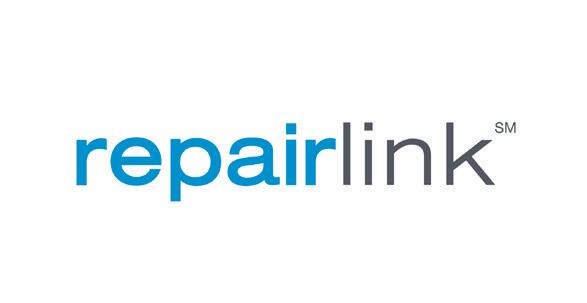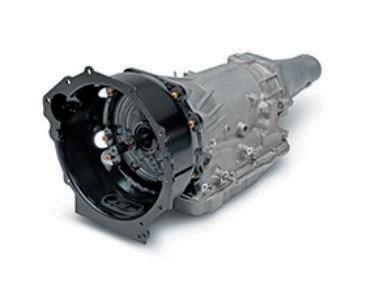














by Chasidy Rae Sisk
PRESIDENT’S
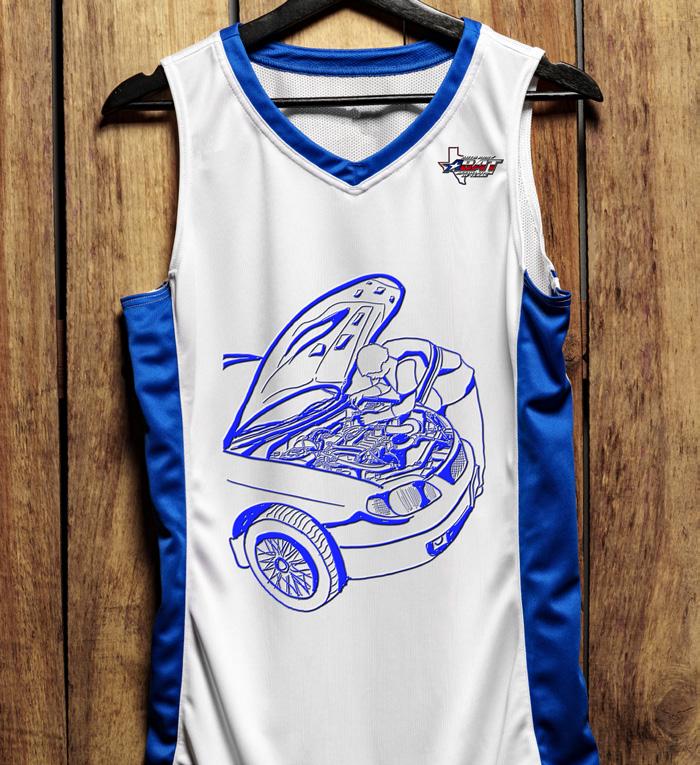
EXECUTIVE DIRECTOR’S MESSAGE by Jill Tuggle
New Look, Old Business & Legislative Rev-Up –
Tune an Ear to ABAT this Fall!
LADIES OF COLLISION by Alana Quartuccio Sherri Higson, Coach Specialists of Texas, Inc.
ASK THE EXPERT by Robert L. McDorman
What’s the Deal with the Texas Department of Insurance Appraisal Data Call?
Official publication of the Auto Body Association of Texas
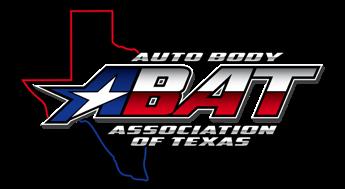
Larry Cernosek Deer Park Paint & Body lcwrecker@comcast.net (281) 930-1539
Chevy Corn Corn’s Collision chevy@cornscollisioncenter.com (979) 279-3310
Kevin Ellison Westway Ford kellison@vtaig.com (972) 584-9033
Brandon Gillespy Park Place BodyWerks bgillespy@parkplace.com 214-443-8250
Chad Kiffe Berli's Body & Fine Finishes chadk@berlisbody.com (512) 251-6136
Greg Luther Helfman Collision gluther@helfman.com (713) 574-5060
Chad Neal Innovative Collision Equipment Chadwneal@yahoo.com (817) 527-2143
Logan
(936) 634-8361
asalinas@southhoustonnissan.com 833-856-7871
Published by: Thomas Greco Publishing, Inc. 244 Chestnut Street, Suite 202, Nutley, NJ 07110
Corporate: (973) 667-6922 / FAX: (973) 235-1963
PRESIDENT/PUBLISHER
Thomas Greco / thomas@grecopublishing.com
VICE PRESIDENT/SALES DIRECTOR Alicia Figurelli / alicia@grecopublishing.com
EDITORIAL DIRECTOR Alana Quartuccio / alana@grecopublishing.com
SR. CONTRIBUTING EDITOR Chasidy Rae Sisk / chasidy@grecopublishing.com
PRODUCTION COORDINATOR Joe Greco / joe@grecopublishing.com
OFFICE MANAGER Donna Greco / donna@grecopublishing.com
SPECIAL CONTRIBUTORS: Burl Richards / Jill Tuggle Robert L. McDorman / Mike Anderson / Jacquelyn Bauman

www.grecopublishing.com




contents of TEXAS AUTOMOTIVE are copyright © 2024 by Thomas Greco Publishing Inc. and may not be reproduced in any manner, either in whole or in part, without written permission from the publisher and/or editor. Articles in this publication do not necessarily reflect the opinions of Thomas Greco Publishing Inc. Stock Images
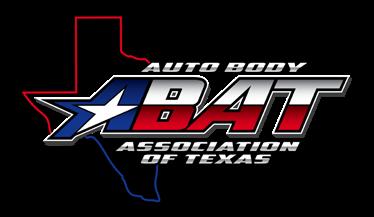
OOur industry is difficult. As shop owners, managers, technicians, repair planners and painters, we face new challenges every day. But you know what? What we do is also a lot of FUN!
When ABAT hosted our 2024 Texas Auto Body Trade Show earlier this year, we made sure to incorporate a ton of networking and social activities into the mix because getting together with industry peers is so valuable on many levels – we learn from each other and can commiserate with one another’s struggles, and sometimes, it’s just really nice to chat with someone who understands the ups and downs we encounter day by day, someone who truly gets it.
While our show is definitely the best in the south, the largest automotive aftermarket trade event in the world is coming up in just a few weeks; SEMA 2024 is happening November 5-8, and I can’t wait to head to Vegas!
So, what’s going on at SEMA? Well, what isn’t going on?! This Show is the mecca of all things automotive, so there’s going to be thousands of manufacturers, equipment vendors, paint companies,
jobbers and suppliers of everything imaginable. I’ve got my eye on a few pieces of equipment and can’t wait to check out everything coming down the pike.
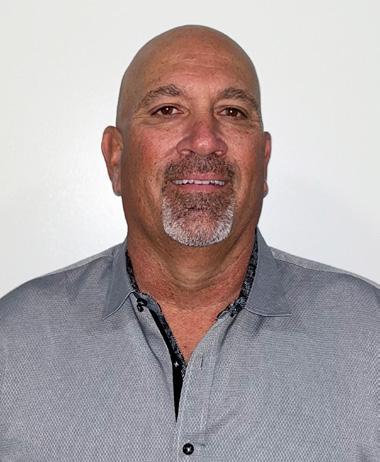
SEMA always features training opportunities galore, but some of the most valuable education happens outside the classroom. I’m looking forward to meeting up with industry friends from all over the country to get a feel for what’s going on in the industry now and what they think is coming next. I’m confident that I’ll learn about more than a few things I’m currently unaware of. And I know we’ll have lots of fun. After all, there’s nothing wrong with mixing business with a little pleasure!
For me, SEMA is a great place to end the year with some ideas of where our industry is headed, but if you’re a body shop owner who isn’t planning to hop on a plane to Las Vegas, that’s perfectly

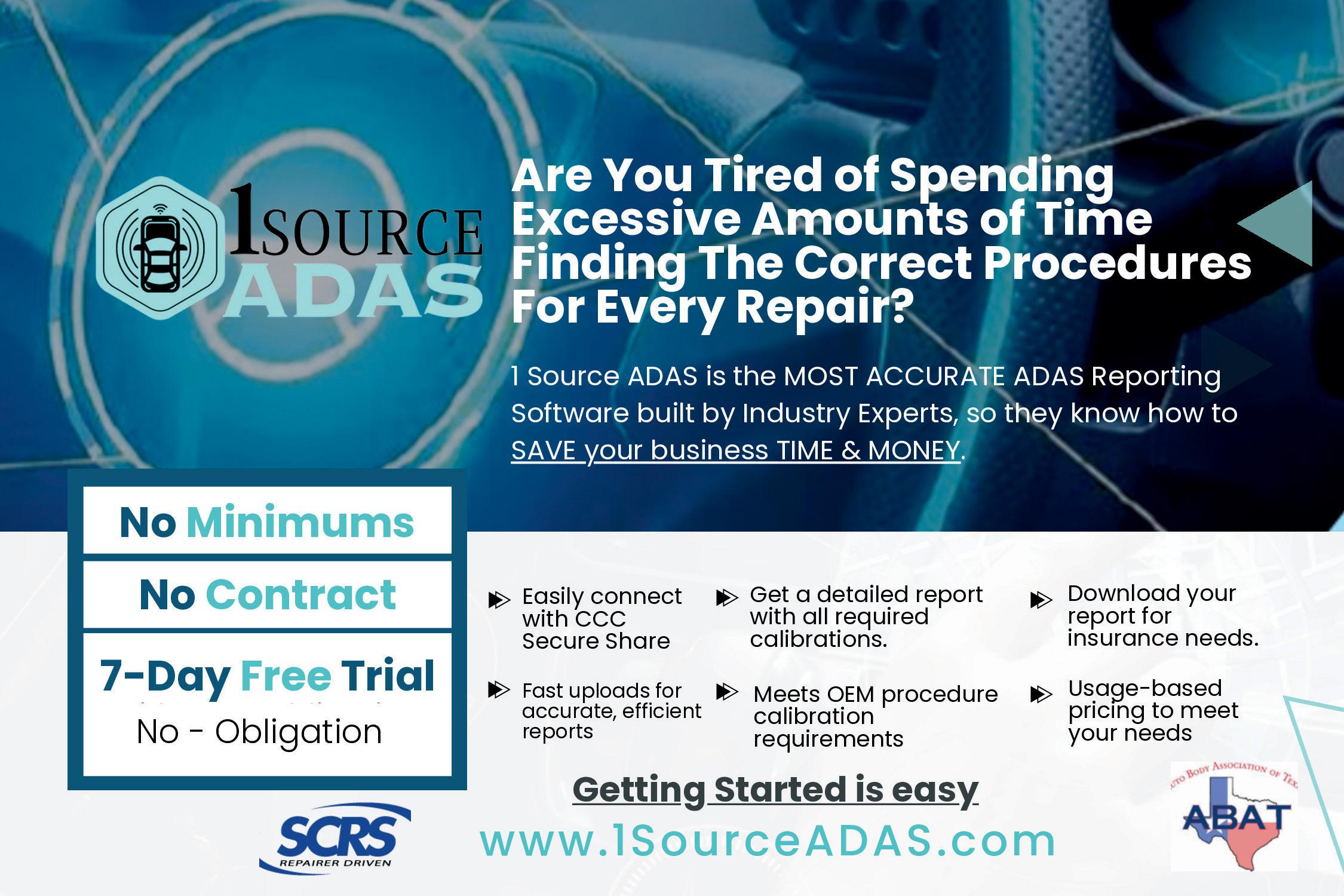
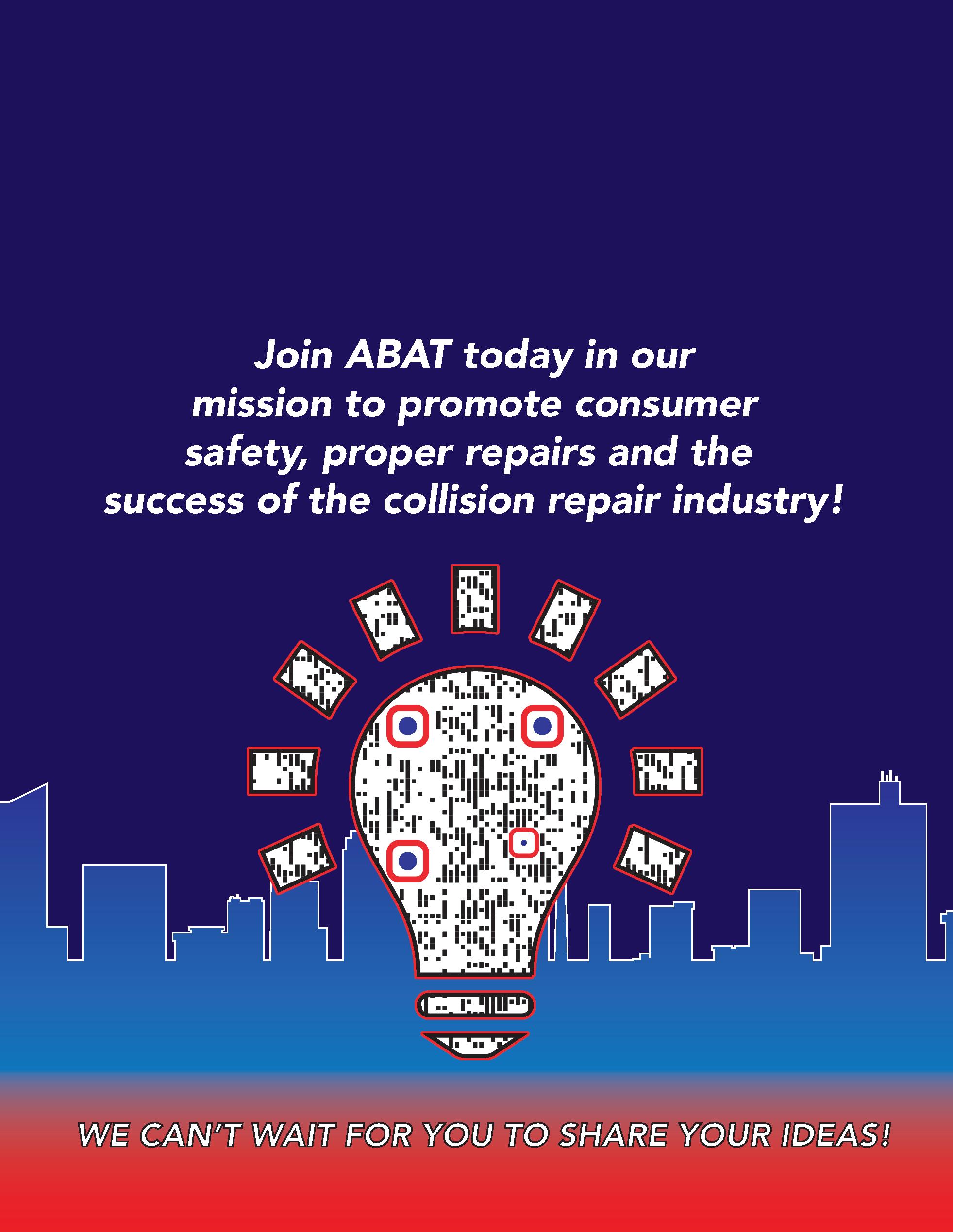
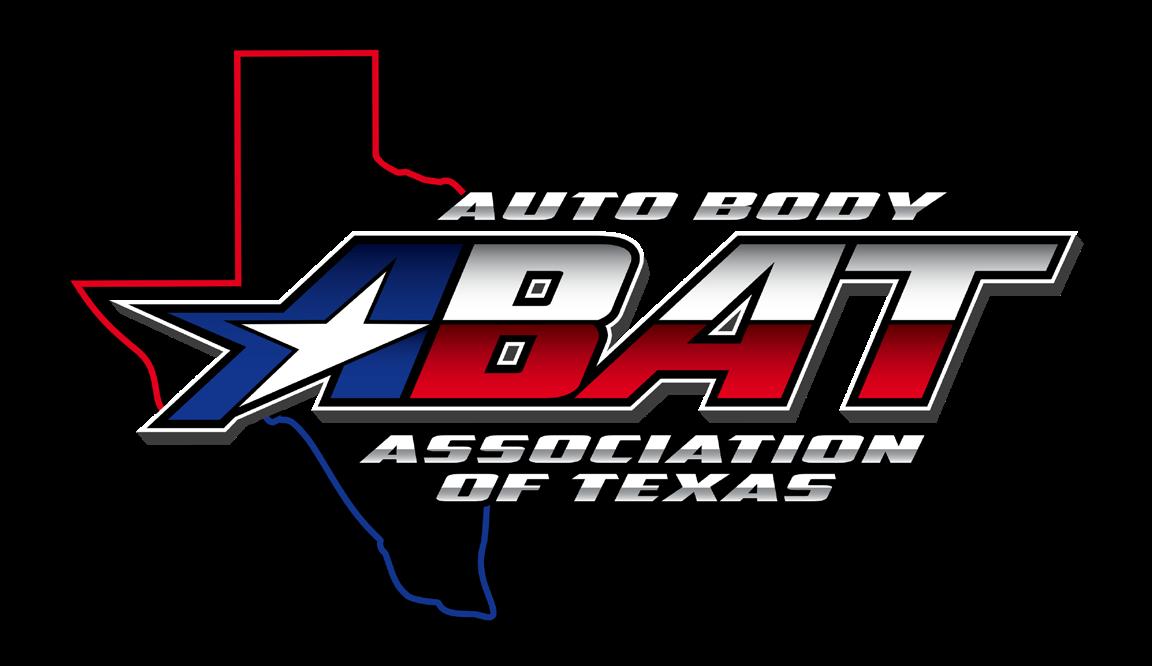
HHey there, ABAT fam! While it may have seemed a little quiet on the home front lately, I can assure you that we are up to BIG things around here! We have some really cool stuff to unveil over the next several months. Some of it is TOP SECRET, but I can share a little sneak peek with you now! Either way, you are going to want to tune an ear to ABAT as we close out our 10th birthday year with a bang!
New look – As you may have noticed, ABAT has taken on a new look! As part of our 10-year rebranding, we have spruced up our logos, colors and up next…our website! I am so excited for you all to see the capabilities with our new website and member module. All things ABAT will finally be housed under one roof so you can build a profile for your company, search our directory, register for events, chat with members and so much more!
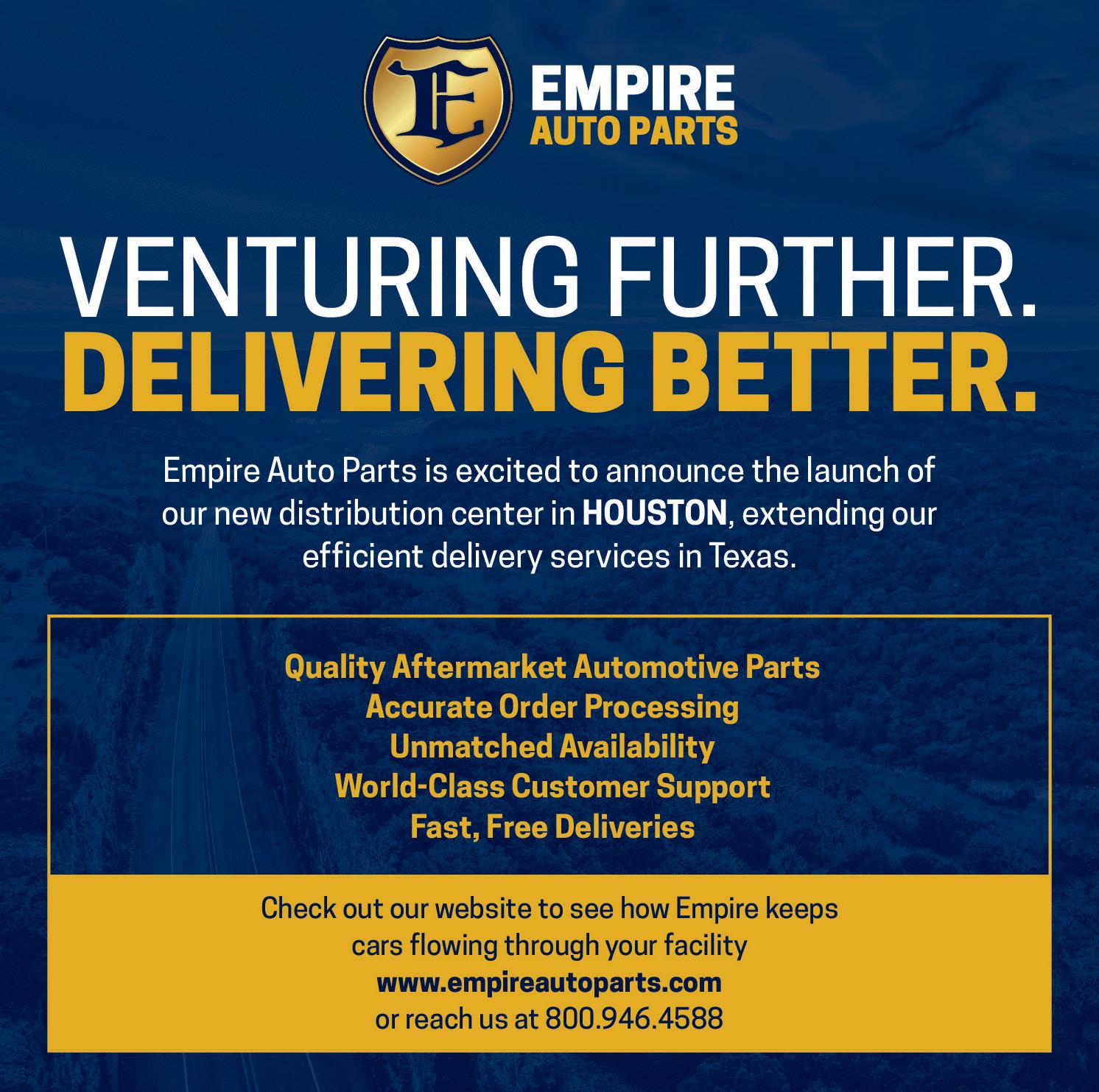

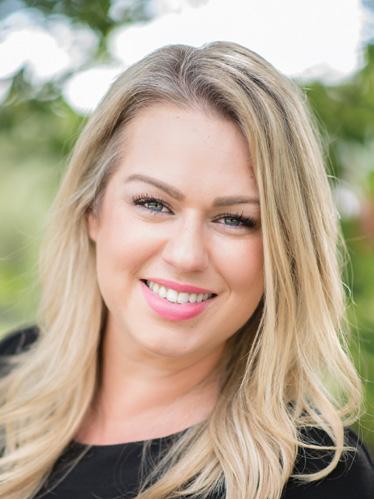
Jill Tuggle
Old business – This year’s resounding theme has been getting back to basics! So many new members are reaching out for help, and the carriers have been especially “frugal” this year, which has created some unique challenges in the collision business lately. We feel the need to get back to ground zero, back where we started, and teach some of the basics to address the issues that ABAT originally helped shops overcome. This will include a webinar series that will end with some action items that are sure to open some eyes and create firm footing for shops who are being pushed around.
Legislation – ABAT is still on the lookout for 82 legislative champions to help us finally push our bills past the finish line. We need 82 shops to donate $1,000 to our 2025 legislative fund. These dollars will be used to cover the cost of the new team we have built to make the Right to Appraisal (RTA) a mandatory policy inclusion here in Texas. If your customers are not invoking their Right to Appraisal to get their vehicles fixed, please reach out to us to learn more. This is often the only recourse the consumer has to get a proper repair and be able to pay the body shop fairly for the work done. RTA is about SO MUCH MORE than total losses. Let’s rev up together – become a RTA champion today!


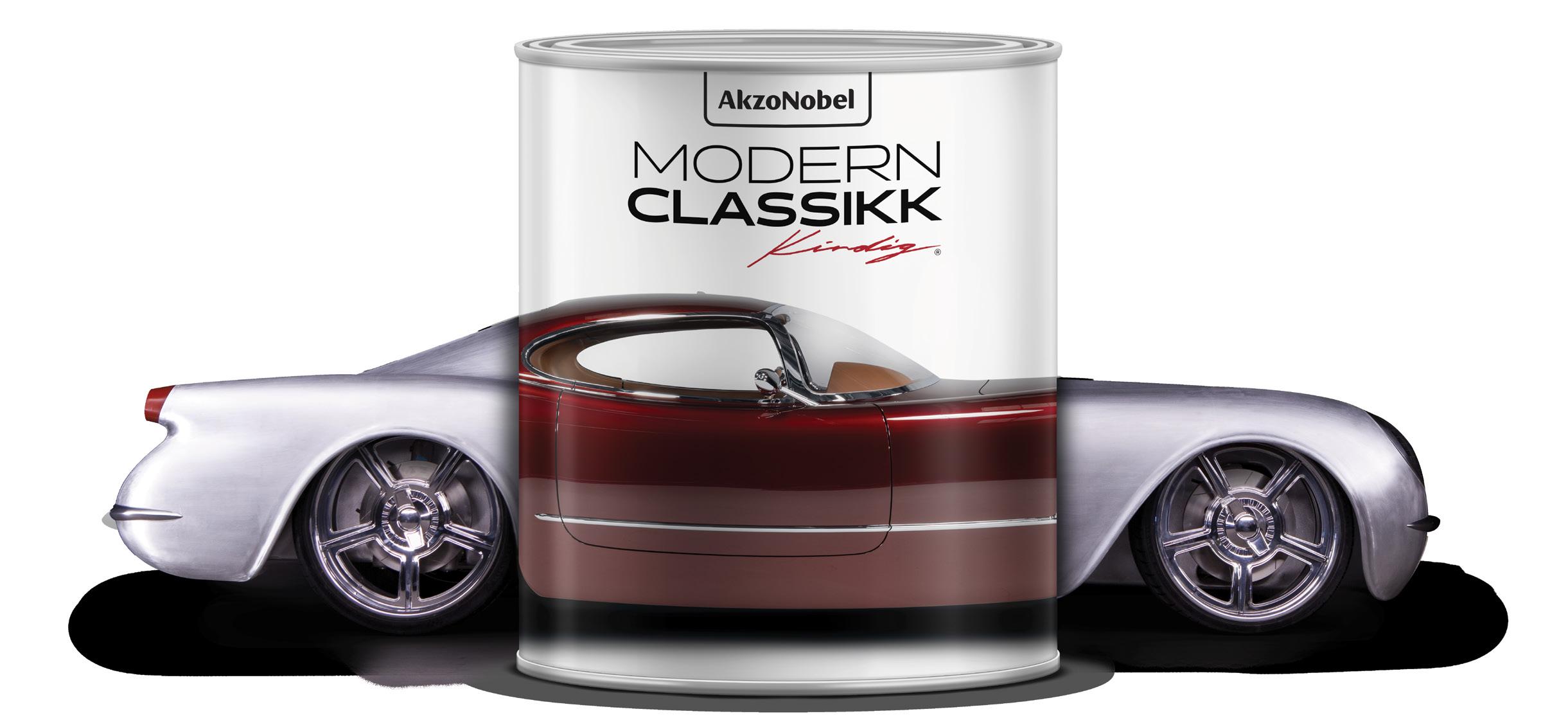

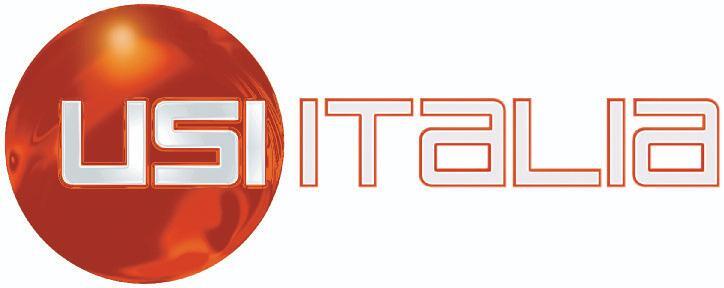
Buying a paint booth is a huge investment, and there are many factors to carefully consider before selecting one Will the booth work well in a region where there’s a ton of humidity and with drastic changes in the weather? How long do you think the booth will last and will it require a lot of maintenance? Will your painters be comfortable using it ever y day and finally, will the company making the booth provide solid training and reliable customer ser vice?
To answer these questions before acquiring two Chronotech spray booths and a prep deck from USI ITALIA back in 2004, Collision Center Manager Kevin McIllveen at Russell & Smith Body Shop in Houston, TX spent six months studying the market He was looking for the best booths that matched his needs to use in a brand-new 36,000 sq ft facility that the company built from the ground up
Mcllveen, age 56, entered the industr y more than three decades ago as an estimator and has worked for Russell & Smith Body Shop since 1993 His goal with his new spray booths was to improve the efficiencies in his paint department and to accommodate his production, he said, while simultaneously saving time and energy if possible
The vetting process was arduous but worth it in the end. "We did our research so that we could make an educated decision," he said "I went to NACE two years in a row and talked to literally ever yone and asked a lot of questions We knew that this was going to be a ver y significant investment, so we took the time to perform our due diligence to cover all our bases We invested in their prep stations as well, which was another good decision, because my guys can work so much faster and effectively with five different places where we can spray We put a curtain up in the prep booth that provides us two additional spaces that are heated and properly ventilated So, when we are really jammed, we can handle the workload and maintain our cycle time without interrupting or slowing down our production "
After using them for a ver y short time, Mcllveen could clearly see that his Chronotechs were more than capable as they quickly became a centerpiece in his new, high-end, modern shop
"We have four paint teams here, consisting of a painter and a painter’s helper and we consistently log approximately 600-700 paint hours weekly,” he said “We switched to waterborne paint when we opened this facility because we want to provide a healthier climate for our employees and the community as a whole ”
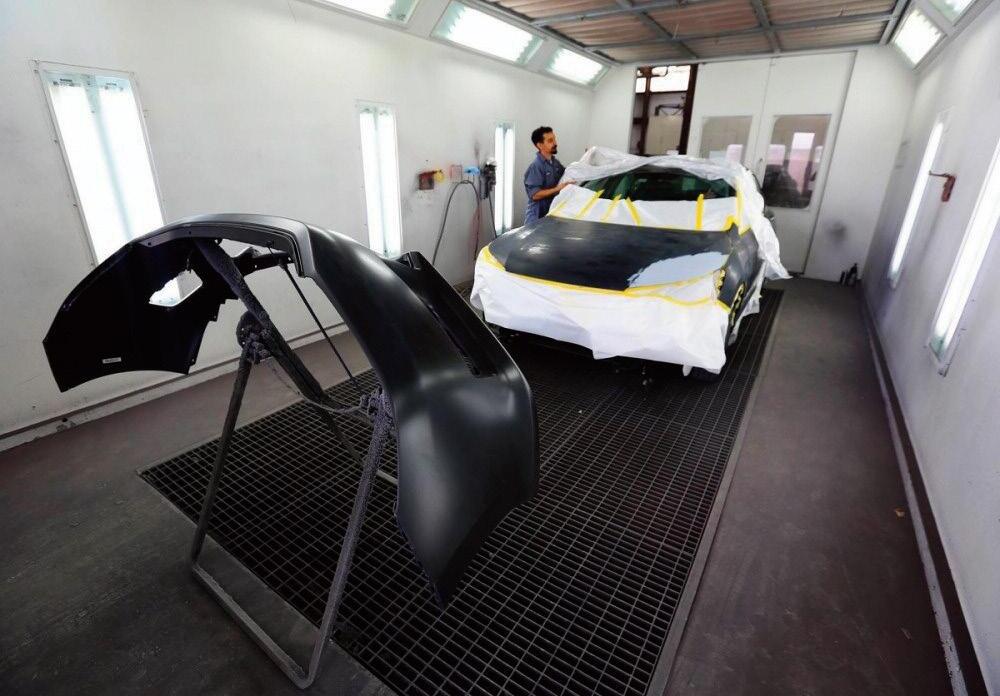
we push these booths and they never let us down ”
Any issues that Russell & Smith Body Shop have encountered with their USI ITALIA booths have been rare and far between But Mcllveen feels good knowing that if called upon, the company will respond and find solutions promptly “If you do your scheduled maintenance and keep ever ything clean, these booths will last you 30 years and maybe even longer The issues that we have encountered with the Chronotechs have been minor and quickly solved, which is impressive when you think that we have been using these booths daily for the last 16 years. I tell people that these booths will be here long after I’ve retired!”

Why was Mcllveen able to improve his numbers by simply adding two USI booths? “In the end, it all comes down to their airflow because we never need blowers or additional air to cure these vehicles The fans in these Chronotechs are exceptional because they feature variable speeds, so we can switch depending on the parameters of each job. Our painters are producing an impressive product day after day, so these booths are saving us both time and money We paint an average of 400 cars ever y month, so
After training provided by USI ITALIA, Mcllveen’s painters were able to start spraying after one day, he said "The Chronotechs are designed to work with waterborne paint, which makes it easier for our painters to do their work After a ver y short time, all of our guys were comfortable and the results were consistently exceptional.”
Mcllveen is also impressed by the Chronotech's sturdy construction and durability "Some booths are just a box, but these are wellbuilt," he said “I know, because I've seen them all and there isn't anything like a USI ITALIA booth "
His career in collision repair industr y has been a great experience and products like his USI ITALIA spray booths and prep station are a part of that, he said “We haven’t had to furlough anybody here and that’s because we value our people and, in the end, our Chronotechs are part of the team ”

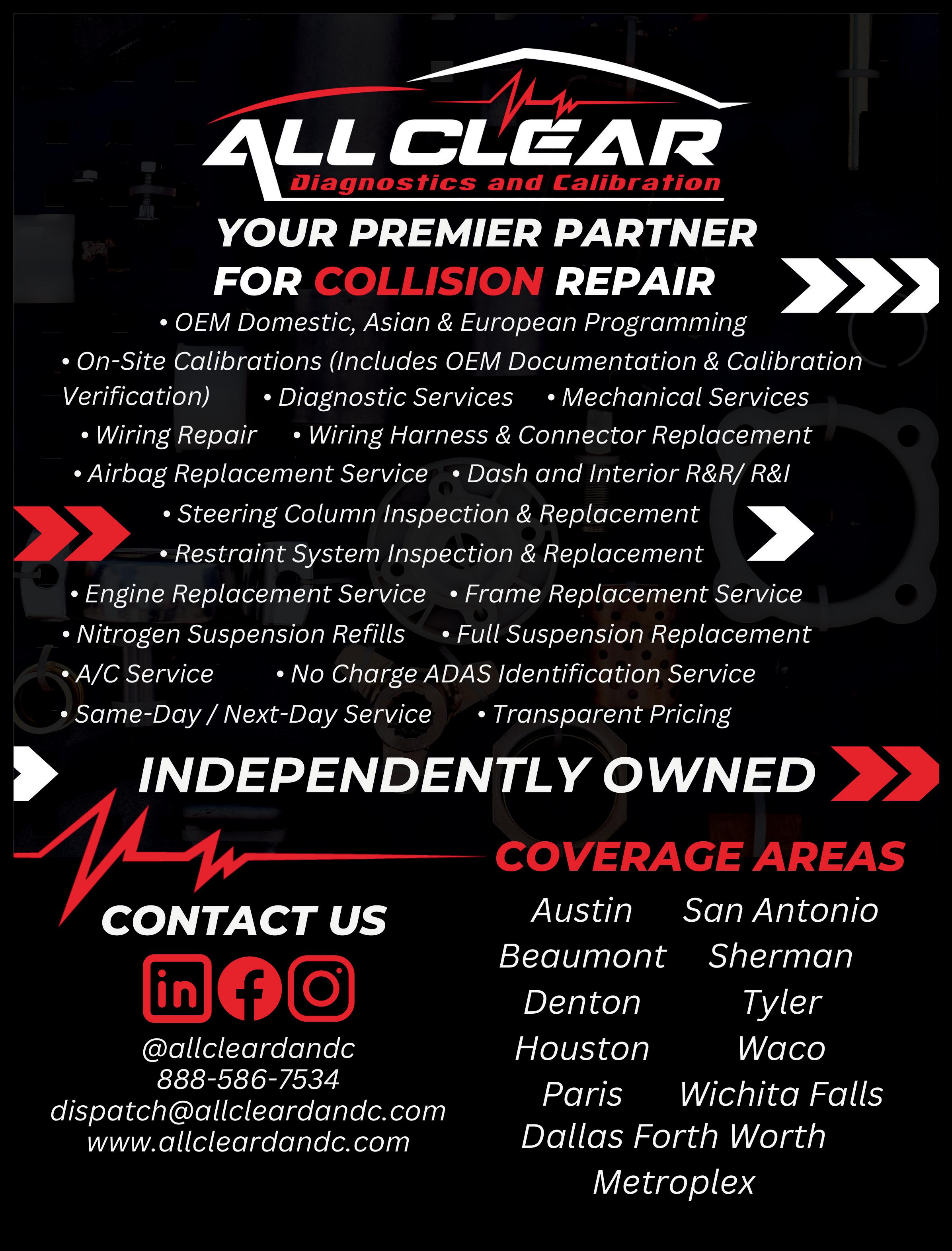
Last month marked the debut of a new Texas Automotive feature devoted to the ladies who make the collision industry in the Lone Star State shine! This month, we caught up with Sherri Higson, director of business development of Coach Specialists of Texas, Inc. who shares her passion for and dedication to this industry.
Texas Automotive: How did you get into this industry? What role do you play?
Sherri Higson: I grew up in Tennessee and went to work for a rental car company right out of college. A promotion brought me to the Dallas area about 20 years ago –driving a U-Haul across Arkansas with my trusty dog riding shotgun, ready for a new adventure! I had several roles, ultimately managing and supporting the insurance, collision and dealership partnerships. I was working with dealerships and body shops daily and really enjoyed the business, the environment and camaraderie! When the pandemic hit, I found myself jobless for the first time since I was 14. It was a very
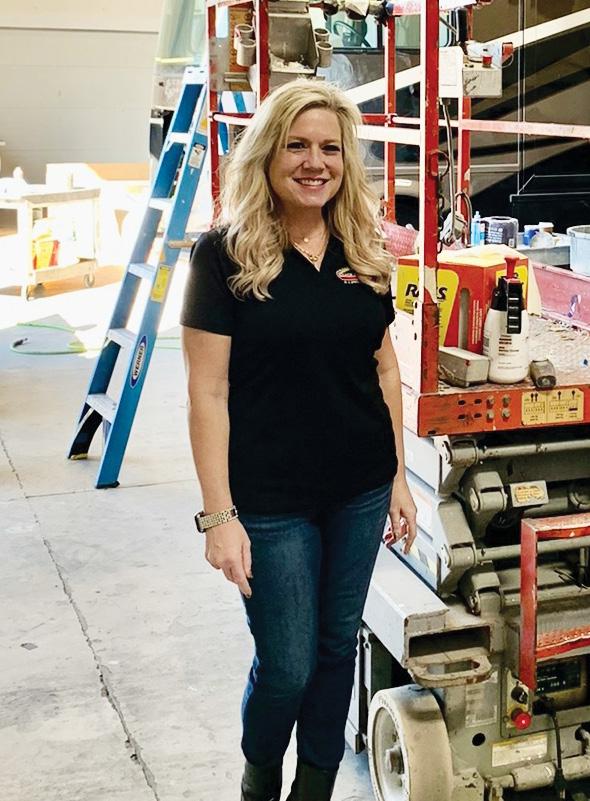
uncertain time, but my industry friends came to the rescue. Before I was even looking for a new opportunity, a friend told me about an amazing company – a non-traditional collision shop whose owner was focused on expanding in the industry. That is where I work now, Coach Specialists of Texas. We also have our commercial division, The Sprinter Center. I’m the director of business development, and I have to say, we do some cool renovations and amazing repairs! Our paint booth is 52’, so we can work on most anything outside the wheelhouse of a traditional repair facility. This includes RVs, party buses, commercial vehicles – you name it! My role is growing the business across all potential platforms. A large percentage of our business comes through referrals from other repair facilities. I am incredibly thankful to still be working with so many acquaintances and friends in the industry.
TXA: What are some of the biggest challenges you/women in the industry face?
SH: Women comprise a very small percentage of the industry, so it requires waking up every day and having the confidence in your knowledge and abilities. (Even the days you might not be feeling it!) It is reminding yourself that there’s no such thing as a ‘man’s industry;’ it’s just an industry that doesn’t have their share of talented women, yet. That’s not to say there aren’t people out there who are going to test you because of your gender. I’ve spent a lot of time educating myself about the business and industry. I walk the shop, talk to the advisors and technicians, ask them to explain repairs and best practices. Having a good grasp of the business and terminology is a necessity for me. I truly believe that after
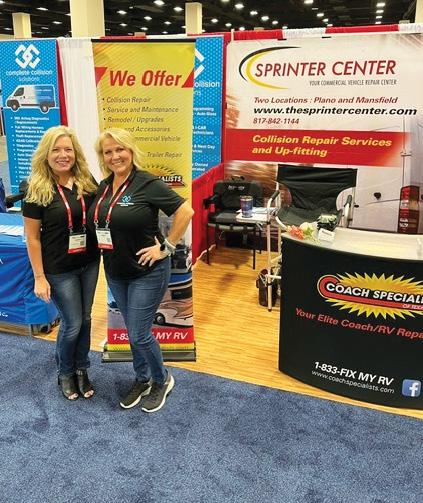
the initial introduction, gender plays a very small role, as long as you project knowledge, confidence and mutual respect. I still get questions that are over my head, times I wish things would have gone differently and the occasional misguided male who just wants to talk to ‘the man in charge.’ Thankfully, there are several amazing ladies in the industry who I can count on to provide an honest opinion and comedic relief when needed!
TXA: What about the industry do you love the most?
SH: This is an easy question! It’s definitely the camaraderie and the friendships. I moved here not knowing anyone in Texas. Co-workers, vendors, customers, accounts, heck even competitors – over the years, these are the people who became my friends and family. We may work for different shops or businesses, but we continue to support each other. Specific to the industry, the level of craftsmanship and skill demonstrated when a mangled wreck is transformed into
pre-collision condition still amazes me. You don’t forget the look of joy when a customer sees their beloved RV fixed up as good as new!
TXA: Do you have any interesting hobbies you’d like to share? What is life like outside the body shop world?
SH: I love to fish; it is my favorite hobby by far, and I don’t get to do nearly enough of it! My first job was working the bait counter at a marina, so I know lots of useless facts about minnows, crickets and worms. I’ve fostered over 20 wonderful dogs that all found great homes – and two ornery ones that I adopted. Have you ever heard of a Catahoula Leopard Dog? Neither had I until I accidentally adopted one. I also co-own a family bowling alley in a small town in Colorado, yet I can’t even break 100 (laughs).
TXA: That sounds fun! How did you get into co-owning this family bowling alley?
SH: I have family members in the bowling industry. In 2020, we had an opportunity to buy a small bowling center in Craig, CO. It’s a town of 10,000 about 30 minutes from Steamboat Springs. At the time, I was unemployed and figured if all else failed, there are worse
by Alana
jobs than running the Thunder Rolls bowling alley in a little valley town. Thankfully, the opportunity here at Coach Specialists panned out!
TXA: Lastly, what encouraging words would you give other women interested in entering the world of collision?
SH: Bottom line, the industry needs a diverse workforce. Eighty-five percent of vehicle purchases are influenced by women, but when you come to a typical repair shop, less than 20 percent of the staff is female. Body shops that don’t have accurate representation are doing themselves a disservice. Careers in this industry can provide long term financial stability without the need for a second income. Whether it be a customer facing role or behind the scenes – don’t let your gender dissuade you. If you’re considering an automotive career and you’re just starting out, find a mentor. I don’t know of many females in the industry who would be unwilling to share advice. You might have to work a little bit harder in the beginning to establish yourself, but keep an eye on the big picture. The collision industry needs you! TXA

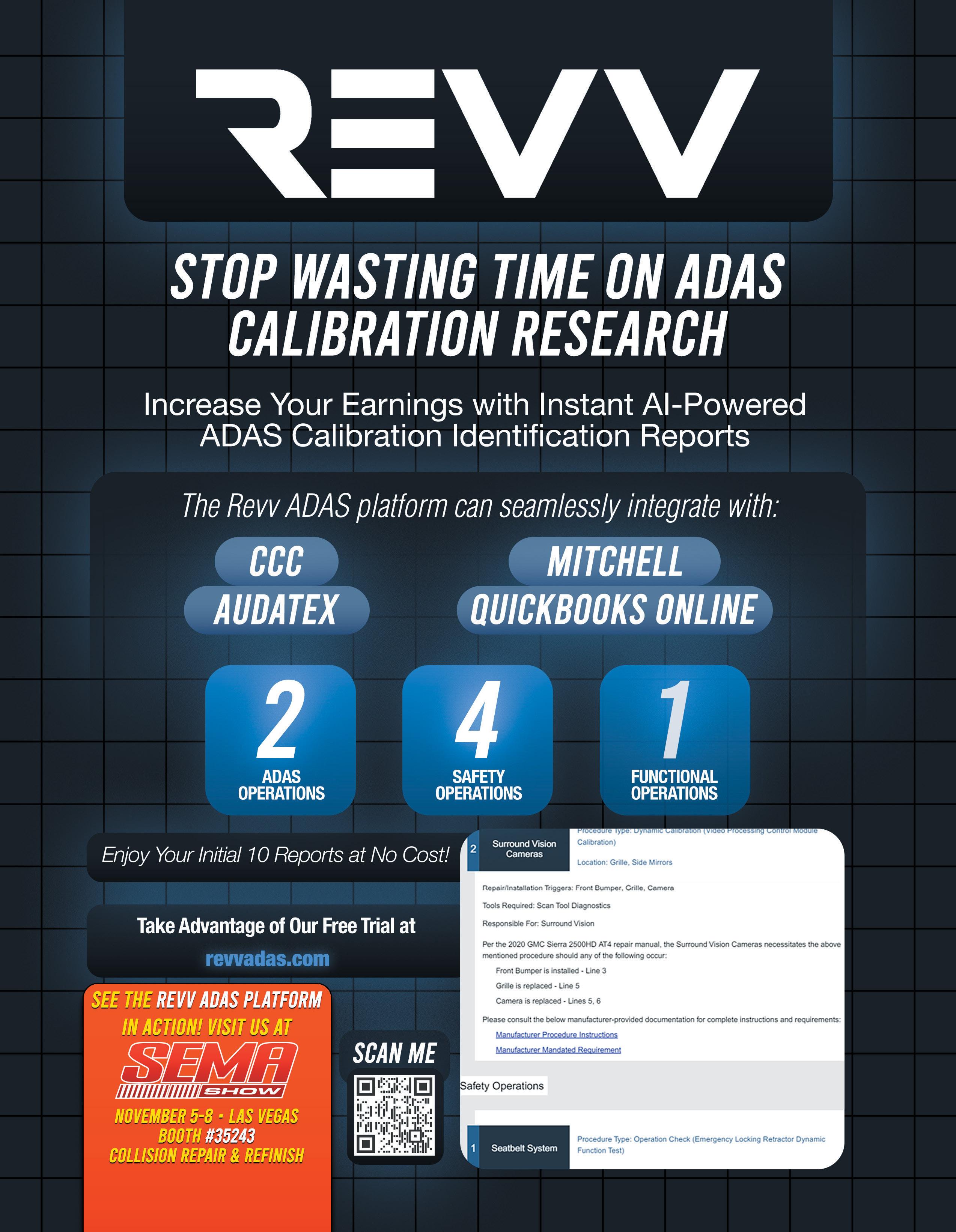

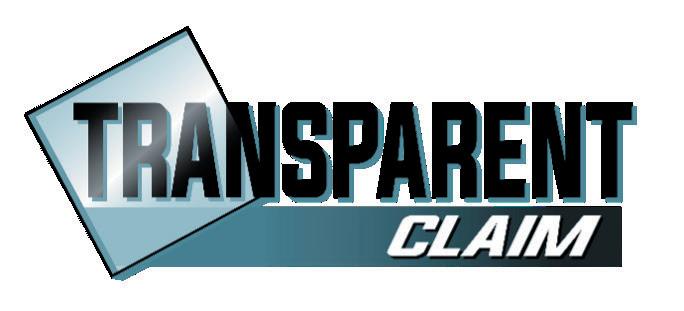
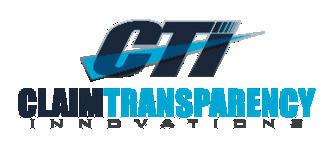
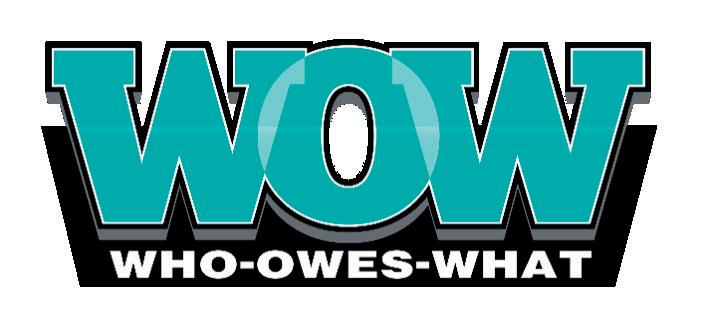



Reliable Automotive Equipment (RAE) is the premier OEM Collision Repair equipment supplier, o ering tailored solutions to the automotive aftermarket. With a focus on innovation and customer satisfaction, RAE provides quality products and expert support globally, serving as a trusted advisor to vehicle manufacturers and collision repair facilities. In addition to selling equipment, RAE o ers comprehensive repair and maintenance servicing for all our products. We also provide specialized training services, ensuring technicians possess the skills necessary to e ectively understand and utilize our equipment.
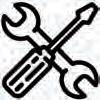
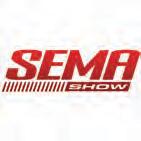


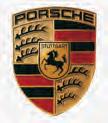
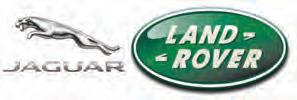

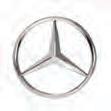




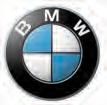

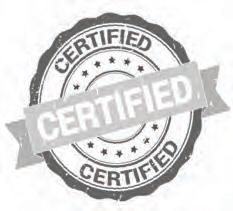
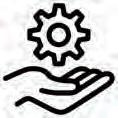
After purchasing our equipment, RAE will reach out to you annually or semi-annually to perform routine maintenance services. Should any issues arise or if something isn't functioning correctly, we also provide repair services to promptly restore your equipment to optimal certified operation.
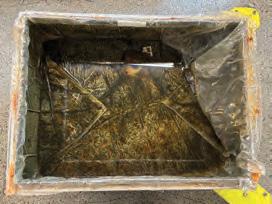
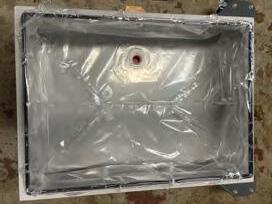
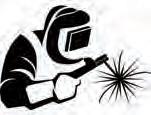
RAE provides extensive training services focused on essential equipment. We understand the importance of keeping your technicians well-educated and informed, which is crucial for both OEMs and our commitment to your operational success. For added convenience, we provide detailed training videos on YouTube, accessible whenever you need them!
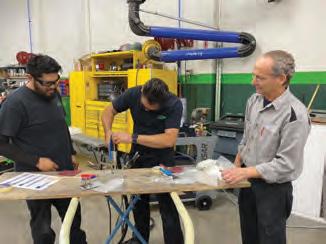
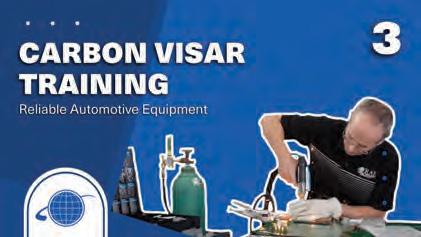
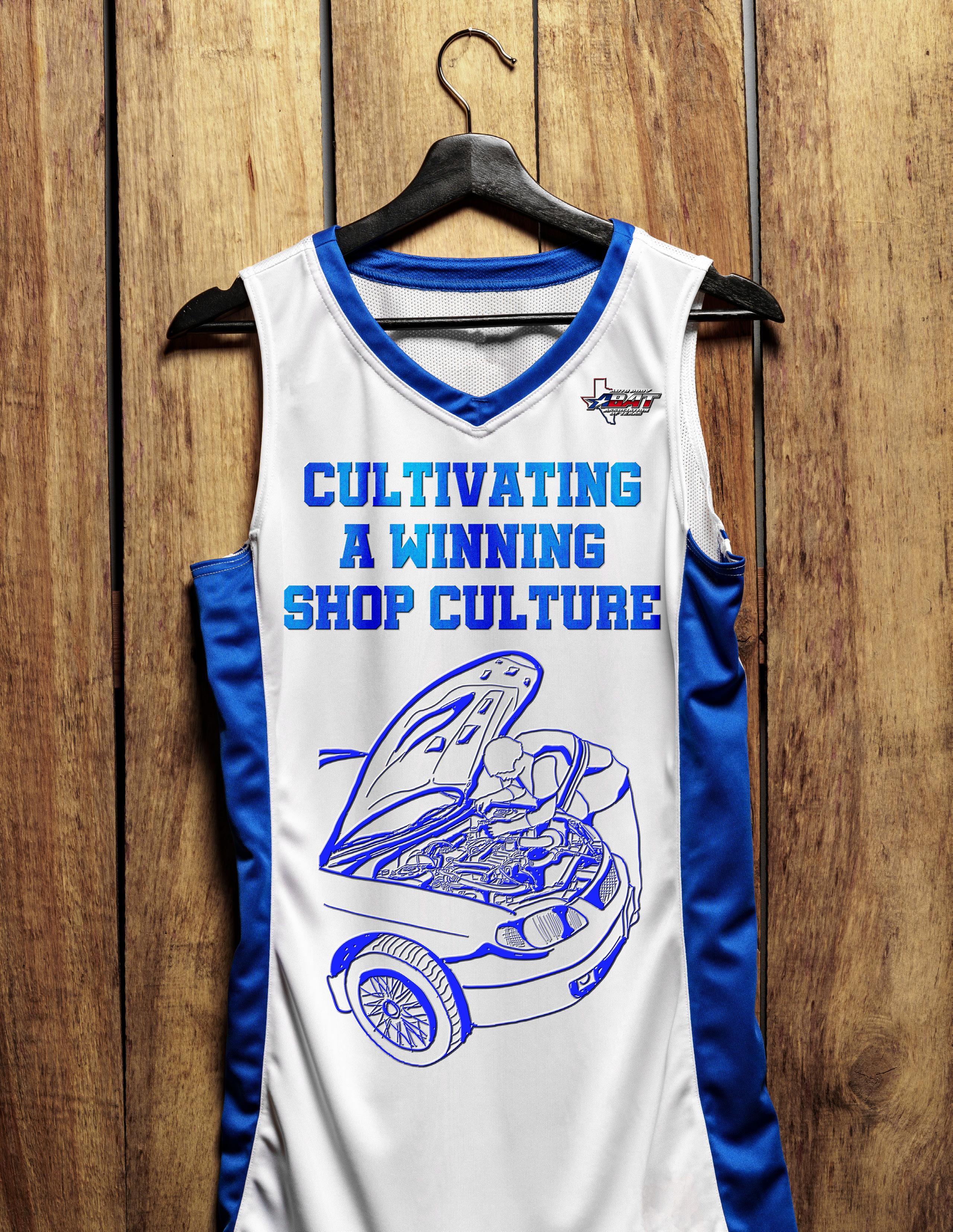
The collision repair industry’s workforce shortage keeps coming up again and again as shops struggle to staff their facilities with qualified help, but at the same time, stories abound of technicians leaving the industry for other fields – even for jobs at Amazon or McDonald’s! Many experts believe the industry’s problem isn’t recruitment, but retention, and even with an unlimited supply of incoming technicians, it will never be enough if the work environment isn’t a place where people want to stay.
It’s all about developing a work culture that keeps employees happy and motivated and, in turn, results in higher customer satisfaction. Successful business owners have learned that if they take care of their team, their team will take care of their customers, and the business will thrive. Culture matters.
So, what is shop culture?
“Culture in a business is like the climate we experience when we walk outside: Is it hot, cold, storming, calm?” asks Tony Adams (AkzoNobel). “Every business has a culture, and it’s a living, breathing, fragile thing. Owners and leaders should be focused on the culture climate of their business as it drives profitability. Culture impacts everything!”
“Culture is the core of change; it’s nearly impossible to make successful changes in a business without a good, or at least neutral, culture,” adds Bob Kennedy (Wesco Group LLC). “I define culture as the attitude of a group of people. Individually, you can have a good or bad attitude, but when an entire group of people shares an attitude, it becomes the shop’s culture. For a shop to make effective changes, the entire team must be invested and dedicated to serving the business, and the owner or manager must be open to considering changes that their team suggests. But when a shop develops a positive culture, it improves retention because employees are happier, and that favorably affects the efficiency, productivity and profitability in the business.”
“Culture is the values, beliefs and behaviors of your organization within your company walls, and it’s important to realize that the values, beliefs and behaviors presented to the external world becomes your brand,” offers Shane Hollas (Maaco Rockwall). “Those two things are connected. Whatever your internal culture is, the outside world will eventually see it and identify it with your company. Defining your culture and building a team that lives it is imperative because it makes your brand stronger.
“It’s something you have to work at every day,” he
cautions. “First, you have to decide what type of culture you want and be able to describe it. Then, as a shop owner, you have to live up to that expectation because if you aren’t living it, you cannot expect your people to buy into that culture.
Once your team knows what that vision is and truly believes in it, they’ll help identify the hires that don’t fit in, so you’ll be able to bring on people who are attracted to and reinforce that culture you’re building.”
“Culture is a shop’s biggest competitive advantage,” is how Mike Anderson (Collision Advice) puts it, and he suggests an easy way to determine whether your culture makes employees feel valued: “If your shop was a sports team, would your employees want to wear your jersey and have your name as their favorite player?”
Unfortunately, many technicians would not wear their shop’s jersey, as evidenced by a lack of engagement.
“When you look at the Gallup surveys across America regarding employee engagement, 70 percent of the workforce is self-admittedly disengaged with almost 20 percent of that group classified as actively disengaged, meaning they’ve mentally quit but still come to work every day, which is causing most of your problems,” Adams shares. “I fear those disengagement numbers are much worse in the collision industry from my experience talking to people on the floor in lots of different shops. While studies indicate businesses with more engaged employees enjoy higher profitability, the converse is also true. In toxic organizations – where employees are treated poorly by management – disengagement leads to reduced productivity, decreased employee satisfaction and higher turnover, inhibiting profits. When it comes to the war for talent, do you want to be known as the shop with a revolving door or the one where people are lined up wanting to come work for you?”
“Shops should strive to be the employer of choice,” Kennedy agrees. “Many shop owners believe that money is

continued from pg. 17
the number one driver, but more employees care about feeling appreciated and having a voice in the business, and that’s why it’s so important to create this type of culture in your shop. Remember that many technicians know each other and will talk, so think about what your employees would say about your business while they’re having a beer with their peers in the industry. Collision centers with positive cultures rarely lose technicians, and they’ve always got a list of technicians interested in coming to work for them.”
Collision-instructor-turned-consultant Jannifer StimmelWatkins (AutiBody Texperience), who specializes in helping shops create a culture that will attract young technicians, insists, “The industry doesn’t have a recruitment problem; we have a retention problem. A shop can hire someone new every month, investing time and money in the hiring process, but getting them to stay is the problem. We all spend the majority of our time on the job, so it’s important that employers recognize the ability to do small things to keep technicians happy so they don’t want to leave you because they know they can’t find those perks anywhere else.”
Although offering competitive compensation and benefits (health insurance, a 401[k], retention bonuses and even team lunches) can improve how employees view their jobs, the most important factor in how most workers perceive a shop’s culture boils down to whether they feel valued.
“Are we treating people like people?” Adams queries. “Simple things like ‘thank you’ go a long way. We spend a lot of time catching people doing things wrong and correcting behaviors, but we need to spend more time recognizing people when they do something right. Culture isn’t something we work on once a month; we have to be aware of the culture we’re building in everything we do and say in the shop because that directly affects how people feel about the business.”
Communication is another large contributor to creating culture in a business. “When I ask employees to identify one thing they would change in the shop, half of the responses are linked to communication or information in some way,” Kennedy says. “Inaccurate information is the only thing worse than a lack of communication, so it’s important to develop an effective conduit of information throughout the shop so people aren’t acting on the wrong information.”
Providing ongoing training is an important aspect of shops with good culture, and part of that requires recognizing people’s strengths. Stimmel-Watkins recalls a former employer who “was good at evaluating each employee’s strengths and utilizing them in that respect. He recognized that I would
excel at diagnostics, so he enrolled me in training and paid for my certifications. When someone showed interest in a certain area, he encouraged that growth, and most of his employees have worked for his shop for a long time because they enjoyed the job and knew he supported us. We had the skills to go anywhere, but we didn’t want to leave because we had a boss who invested in us.”
Stimmel-Watkins recognizes that many shop owners fear investing in employees only to have them find other employment, and she suggests the industry start offering contract models. “My employer paid for my I-CAR certifications and put me on a six-month contract. If I had left before that time period, I would have been required to pay him back for his investment. Other industries have contracts, so why don’t we?”
Hollas agrees. “We are a highly certified shop, and I invest a lot in training and bringing in specialists. I also make sure our team has the best equipment money can buy because I want them to walk in and know they have the tools and support to do the job.”
“Making sure technicians have the tools they need makes a huge difference,” Stimmel-Watkins inputs. “A lot of shops make their team buy their own factory-recommended tools, and that gets expensive, especially if they aren’t getting paid as well as they deserve.”
Many other factors impact a shop’s culture. Simple things like holding regular meetings where the team can discuss challenges or hosting group lunches to show appreciation for employees can also improve morale. Kennedy suggests posting the shop’s billable hours at the end of each month to demonstrate the facility’s shop-wide labor efficiency because “it gets the entire center thinking as a group instead of as individuals. Collision centers tend to be very individualistic, which causes poor culture.”
Hollas uses monthly team lunches to celebrate birthdays, and he also treats his team to a fun outing when they achieve a goal. His team’s favorite activity is visiting a local go-kart track where they get to bond outside the workplace. He also hosts regular “family” meetings with his team “where we get in a circle and discuss things that are going sideways so we can work things out. It’s not just about positive reinforcement; when something isn’t working, we brainstorm together to find a solution.”
Something as simple as offering flexibility in someone’s schedule can be incredibly meaningful, whether that’s allowing someone to leave early for their child’s school play or
promoting a four-day workweek.
As Adams pointed out, culture is intrinsically tied to the environment, and Kennedy points out that sights and sounds within a shop also impact the business culture. “Your brain constantly processes sight and sound, and if everyone is playing different music or there’s a bunch of clutter, these cultural drivers become distractions and cause fatigue. Making decisions about the shop atmosphere as a group plays a huge role in culture.”
Having the right culture is imperative in any business, but as the older generation nears retirement and shops strive to introduce younger technicians into the workforce, it takes on new meaning and requires additional considerations.
“We need to understand that each generation is different – not right or wrong, just different,” Adams suggests. “The baby boomer generation has a different point of view and expectations for work than Generation Z. We have to shift
“

We need to do a better job of recognizing and promoting all the roles in this industry: diagnostics, mechanical, floor production management…the list goes on and on, and we could do a better job of engaging the younger generation by identifying these potential career paths and helping them understand how they can achieve them.
“Shop owners need to recognize that no one is going to be great at everything, so taking the time to work with them and figure out what they’re good at will help develop that relationship,” she continues. “While this generation does not have all the same values as older folks, they do understand loyalty to those who helped them get where they are. If you help them grow, they’ll stick around and excel in this field.”
Of course, people will make mistakes, and shop owners have to accept that, according to Hollas. “Mistakes are going to happen, but if someone’s heart is in the right place and they’re trying to do the right thing, when they mess up, you
” We need to understand that each generation is different – not right or wrong, just different. We have to shift our point of view sometimes and not be so locked into our own way of thinking.
our point of view sometimes and not be so locked into our own way of thinking. If we don’t, it gets in the way of creating a healthy culture, creating friction because our expectations don’t match theirs.”
“Age differences in a well-cultured collision center is beneficial,” Kennedy believes. “Often, when younger people are brought onboard, older technicians may feel frustrated or threatened; they don’t realize it, but the last thing they really want is for the shop to hire another A-tech who takes all the work. Shops have a lot of C-grade work, so bringing in someone less experienced and training them up actually benefits everyone.”
Again, this requires investing in employees, and StimmelWatkins points out that providing training is more important for this generation than any that has come before. “A new technician needs good mentors who can assess their strengths and help them advance. So often, young techs leave the industry – is it too hard, or did no one give them a chance?
-Tony Adams, AkzoNobel
can’t be mad at the person. Figure out how to fix it, but let them know they’re supported and ensure they have every opportunity for success.”
Shops that refuse to create a team atmosphere destroy their culture. “You have to make sure everyone understands their role and does their job,” Stimmel-Watkins counsels. “Find people who work well together, and don’t be afraid to get rid of any bad apples. I’ve seen shops lose five dedicated employees because they’re too afraid to fire a bad one. One person having a negative attitude can ruin the entire shop’s culture!”
Hollas offers a shop owner’s viewpoint: “A lot of cultures break down because the owner or manager is a hypocrite. I cannot expect my employees to work hard if I don’t do the same. I need to be willing to roll my sleeves up and do the hard stuff; we succeed or fail together, as a team. Culture is difficult, but it pays dividends.”
by Robert L. McDorman
Dear Mr. McDorman,
I own and operate a collision facility in East Texas. On the Texas Department of Insurance (TDI) website, I saw that TDI requested appraisal data for personal auto claims from the top 10 insurance carriers for the period of July 2020 through June 2023. As I read it, this Data Call will include the appraisal results during the requested period for repair procedure disputes and total loss claims. Did the TDI contact you for your data on these types of claims? Also, do you know when the results from this Data Call will be released? Can you share with the readers the appraisal results averages from repair procedures disputes and total loss claims for the clients represented by Auto Claim Specialists? Based upon the settlement increases that I have seen from the clients we have referred to Auto Claim Specialists, I am concerned about these numbers and the under-indemnification in auto insurance claim settlements in general.
Thank you for your questions. Yes, this is correct. TDI requested that the top 10 insurance carriers in Texas submit their appraisal data for the three year period of July 2020 through June 2023. TDI requested these carriers to return their results to TDI by July 12, 2024. I understand that TDI will release the results from this Data Call sometime in October of this year. I commend TDI for stepping forward and requesting this data. With my own two ears, I have heard lawmakers requesting this data from carriers over the last two legislative sessions, but they were simply ignored. Like you, we are excited to be close to learning the results of this Data Call. As of this date, TDI has not asked for our data for that same period. However, I want to reassure you that we at Auto Claim Specialists are open and transparent and would be more than willing to supply our data covering the same period or for any period requested.
Here’s what our data shows. From 2017 through June 2024, our average increase on total loss claims above the carrier final offer for zero to two-year old vehicles is $4,387; for three to five-year old vehicles, it is $3,908; for six to eight-years old, it is $3,617; for nine to 11-years old $3,555; for 12-14 years old $3,483; and for vehicles over 14-years old, it is $5,009. The average settlement increase for all years combined is $3,965. On the repair procedure disputes we have handled for the insured for the same period, the average settlement increase – from the carrier final supplement to the signed agreement between the independent appraiser – is $5,981.
Another important detail about the repair procedures we
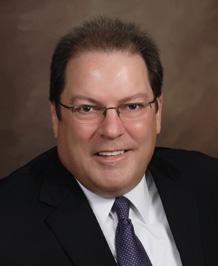
handle is the amount of time it takes to resolve. The average time between the date of loss and when we file the Right of Appraisal for the insured is 100 days, with another 60 days on average passing from the time we file the Right of Appraisal until the carrier appoints an independent appraiser. Finally, it takes an alarming 103 days on average from when the carrier appoints their independent appraiser until a signed agreement is reached. This 263-day span on repair procedure disputes is concerning.
As we see from the data and time periods listed above, we – as insured citizens of Texas – need our lawmakers to pass the mandatory Right to Appraisal bill this upcoming session. Without the passing of this bill, this injustice will not only continue; it will likely grow even worse.
We at Auto Claim Specialists understand your concerns about under-indemnification. Until legislators pass laws to make the Right to Appraisal mandatory in Texas for all motor vehicle policies, we have no choice but to continue to advise our clients who have been harmed and cheated by their insurance carriers to fight like the third monkey in line to get onto Noah’s Ark when it has already begun to rain, and we will help. In my professional opinion, the more times these systematic under-indemnification schemes are exposed and monetary punishment is levied, the quicker change will come to help us all.
Our position at Auto Claim Specialists is that the Right to Appraisal should be a mandatory contractual right in every policy. For the 89th Texas Legislative panel, we have teamed up with lobbyist Andrew “Drew” Graham to educate lawmakers and help secure mandatory contractual appraisal rights for all insured Texans. We, the insureds, are many, and I am confident that if we join forces and all do what we can, we can be successful in securing our rights and our children’s rights to contest insurance
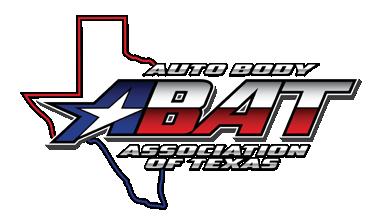
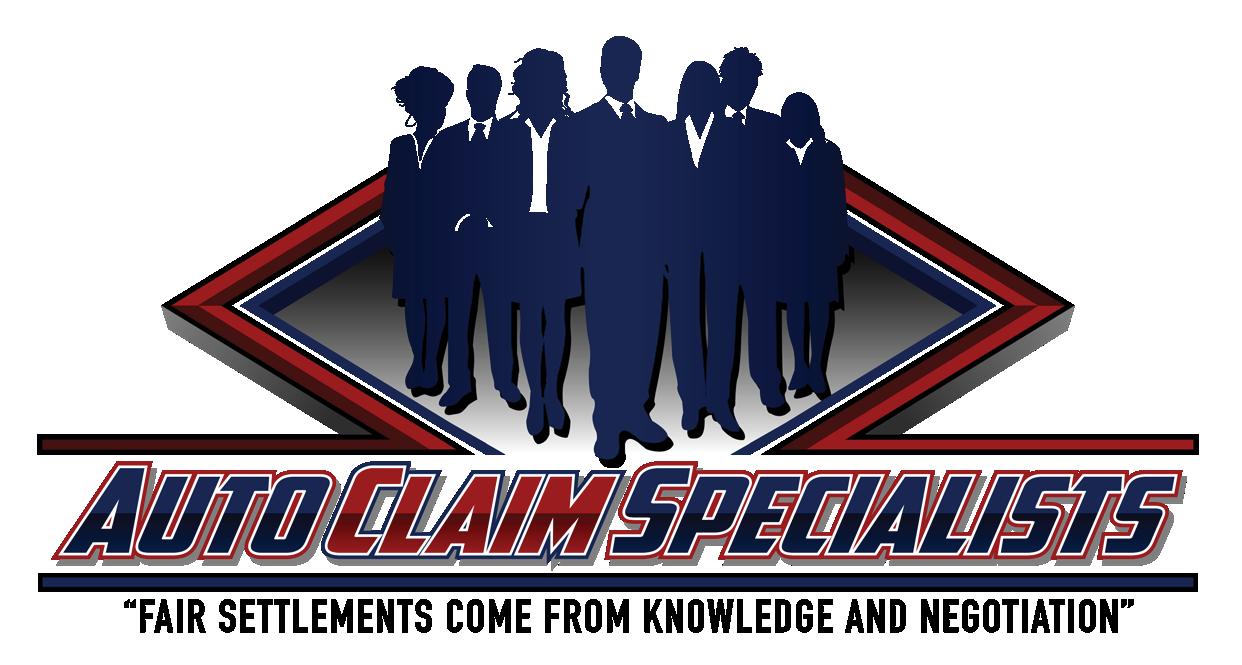

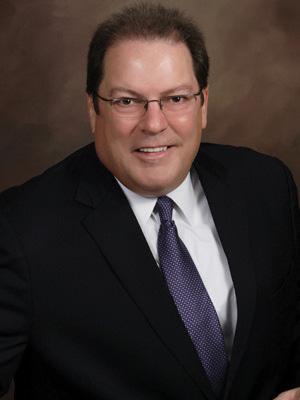
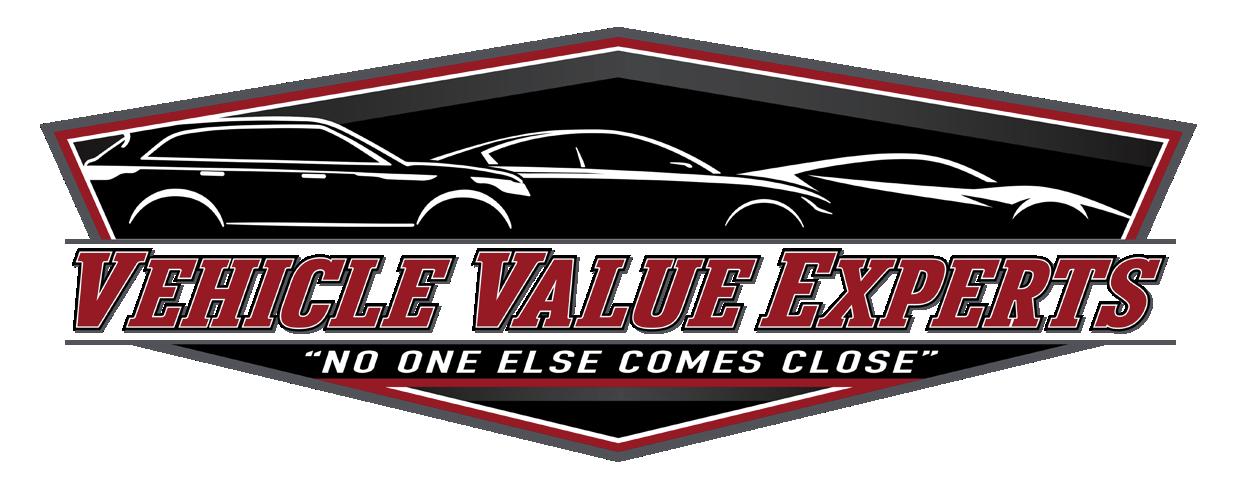
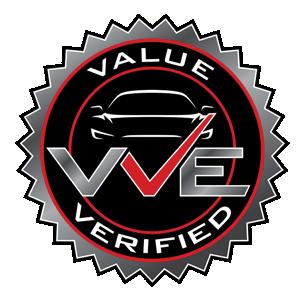

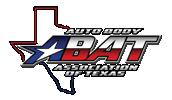
continued from pg. 20
settlement offers that would result in underpayment of losses and/or shoddy and dangerous repairs.
As shown above, the under-indemnification in repair procedure claims in Texas is rampant. Most of the estimates and supplements for these repair claims had many overlooked (by design) safety and OEM-required operations needed to restore the loss vehicle to its pre-loss condition to the best of one’s human ability. I believe limiting or removing the insured’s right to appraise a repair procedure is a serious safety issue. The limiting or eliminating the Right to Appraisal by the insurance carrier in a repair procedure dispute will be the nail in the coffin for safe roadways in Texas.
The spirit of the Appraisal Clause is to resolve loss disputes fairly and to do so in a timely and cost-effective manner. Invoking the Appraisal Clause removes inexperienced and biased carrier appraisers and claims handlers from the process, undermining their management’s many tricks to undervalue the loss settlement and under-indemnify the insured. Through the Appraisal Clause, loss disputes can be resolved relatively quickly, economically, equitably and amicably by unbiased, experienced, independent third-party appraisers as opposed to more costly and time-consuming methods such as mediation, arbitration and
litigation.
In today’s world, regarding motor vehicle insurance policies, frequent changes in claim management and claim handling policies and non-standardized GAP Addendums, we have found it is always in the best interest of the insured or claimant to have their proposed insurance settlement reviewed by an expert before accepting. There is never an upfront fee for Auto Claim Specialists to review a motor vehicle claim or proposed settlement and give their professional opinion as to the fairness of the offer.
Please call me should you have any questions relating to the policy or covered loss. We have most insurance policies in our library. Always remember that safe repair is a quality repair and quality equates to value. I thank you for your question and look forward to any follow-up questions that may arise.
Sincerely,
Robert L. McDorman TXA
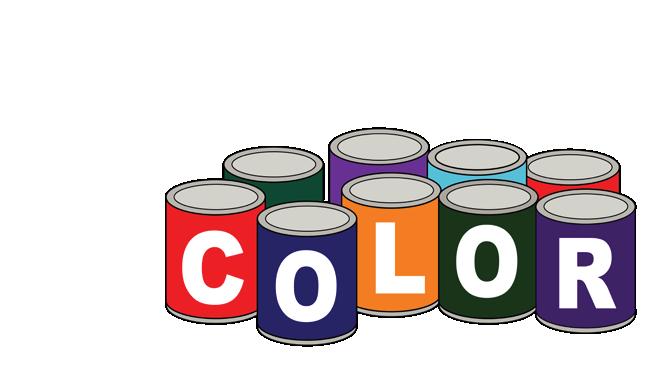
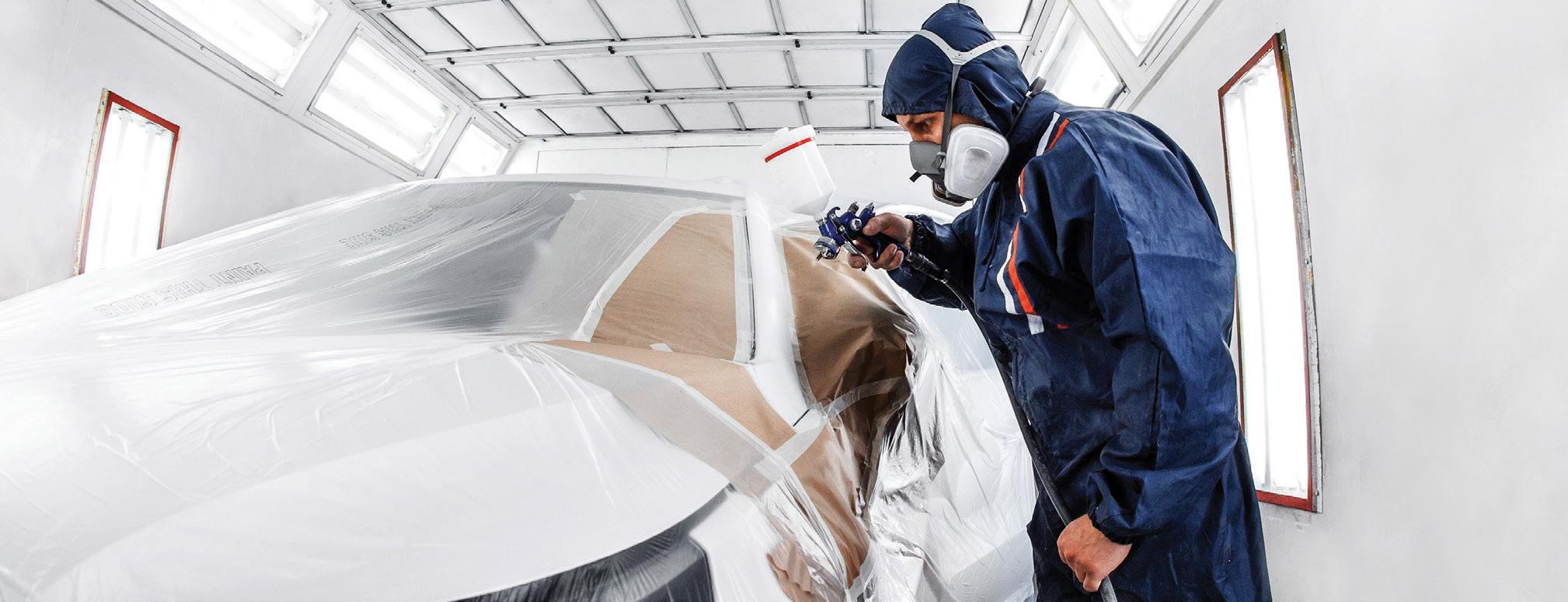

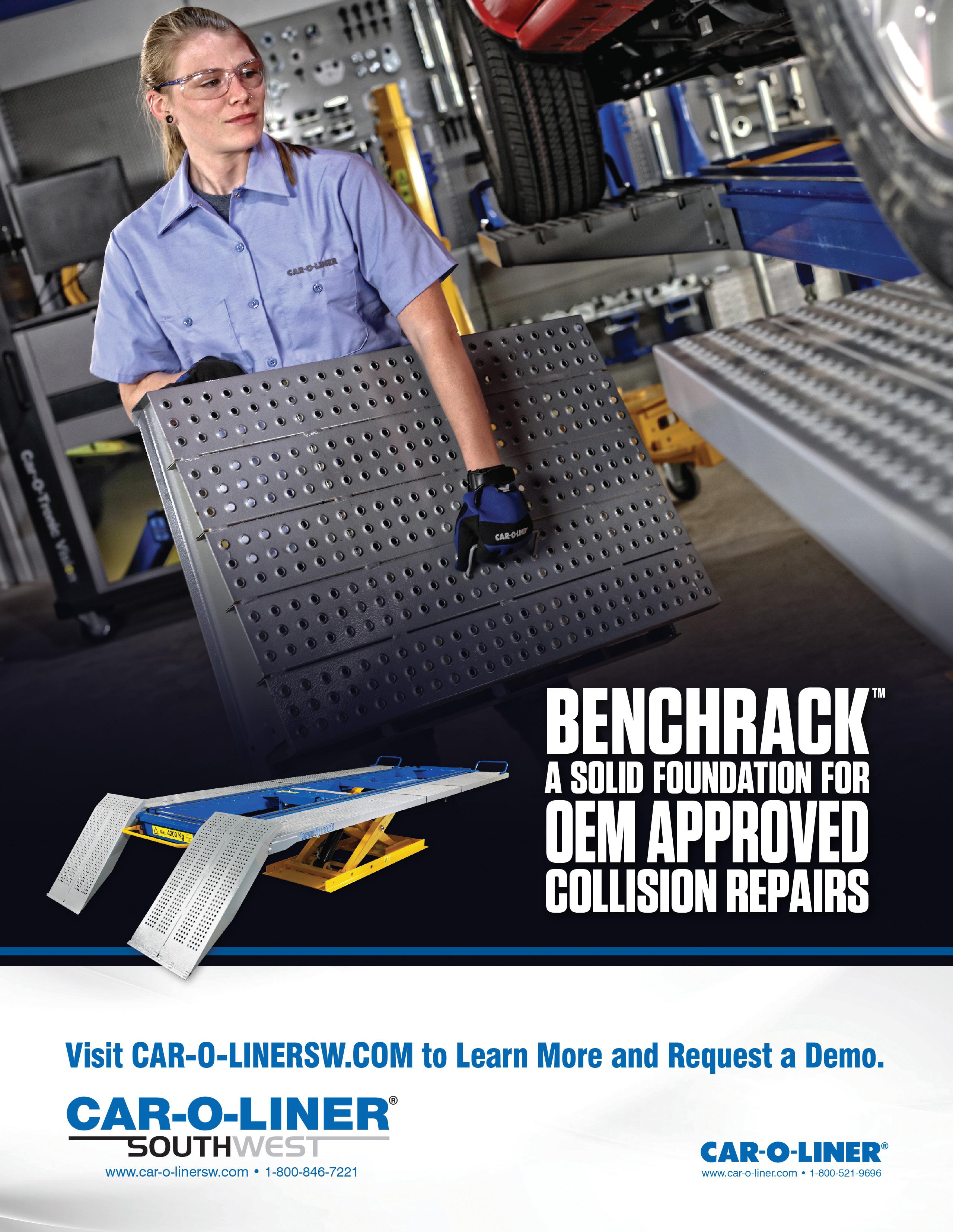
Quality repairers need quality tools to ensure precision in every job, every time. The RAE – Wieländer+Schill XPress 800 Riveting System provides a variety of options for all riveting needs, offering excellent accessibility and effortless maneuverability regardless of the nature of repairs needed.
The XPress 800 is made even more user-friendly with easily interchangeable adaptors, while being lightweight and effortlessly maneuverable. Its power control system includes a convenient STOP key, allowing you to halt tool advancement for adjustments without releasing pump pressure.
The XPress riveting system provides versatility by accommodating various tools for diverse functions and applications, with several customizations available to accommodate any repair needs. Thanks to its modular design, this device seamlessly integrates with a range of hydraulic cylinders and designated C-arms, enabling pressure control for self-piercing rivets, flow form rivets, blind rivets, punching and blind rivet nuts (when appropriately configured). The basic, standard and full set options offer versatility and portability, enabling repairers to locate the system wherever the job requires. Additional kits are available for specific manufacturers, allowing facilities to adhere to OEM requirements and repair procedures wherever necessary.
At RAE, we recognize that the right tools are only half of the equation. That’s why we provide comprehensive training with
okay…as long as you still recognize the need to escape your bubble so you know what’s going on outside your shop’s four walls. Connecting with like-minded collision professionals is important for the success of your business and for our collective success as an industry.
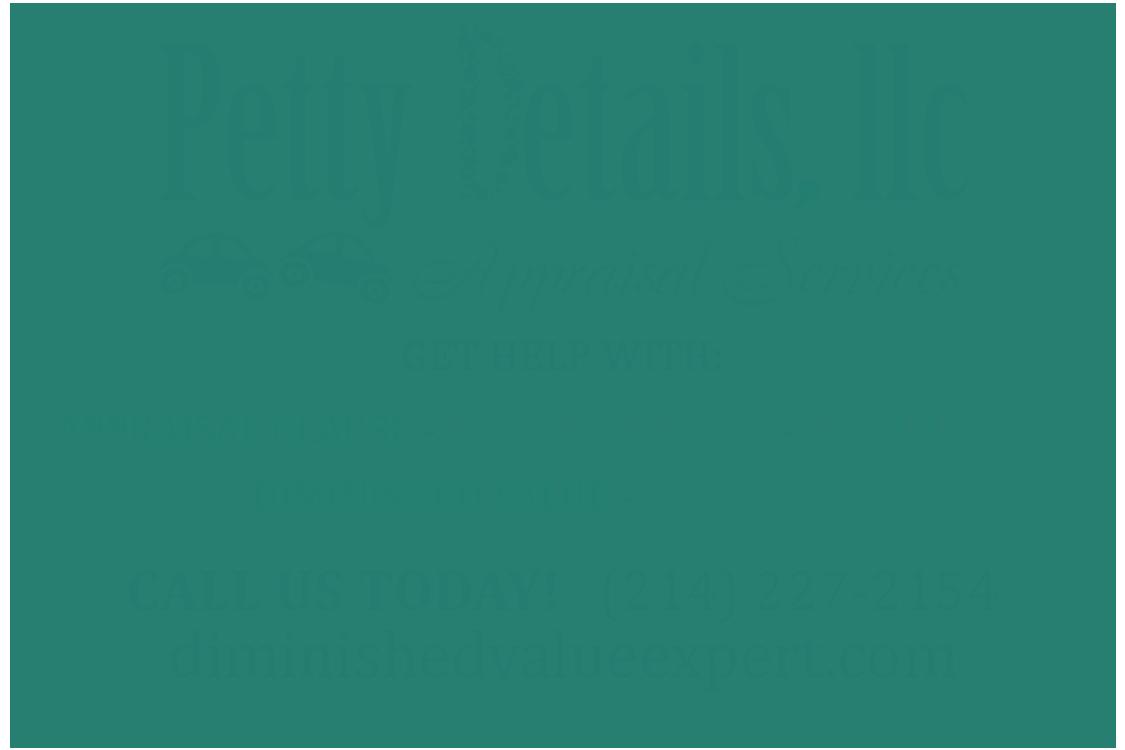
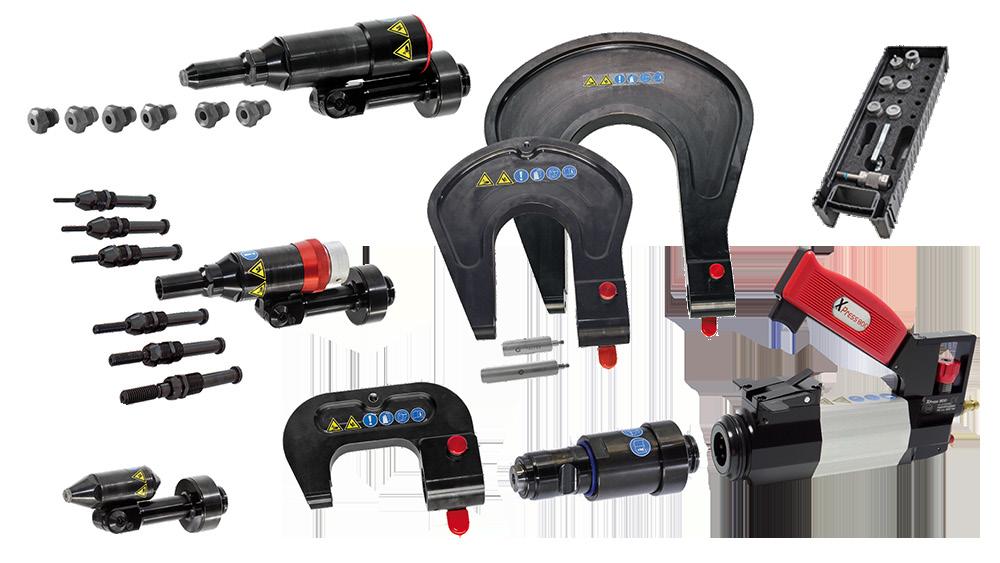
wide variety of repairs.
the purchase of tools like the XPress 800, ensuring technicians can confidently master the equipment and perform repairs with precision. This commitment to training helps facilities not only meet, but exceed, OEM standards.
To learn more about the XPress 800 system and our full product offering, visit raeservice.com, and visit RAE at SEMA 2024 in the South Upper Hall, Booth #32135.
ABAT will be offering some opportunities in the coming months for shops to “get back to basics” with classes on important topics like repair planning and other things that impact a shop’s profitability, taught by some of the leading experts in our field. I can guarantee you’ll learn something useful and have a great time if you join us with a positive attitude.
Speaking of positive attitudes, stay tuned for an upcoming survey from ABAT. I don’t know about you, but I’m sick and tired of insurance companies referring to a “prevailing competitive rate” that they can’t back up with any data, so we’re going to be hiring a third-party company to collect data and uncover the truth about the prevailing rates in our markets. And once that information has been collected and collated, I’m going to take extreme pleasure in shoving that data in adjusters’ faces. Did I mention how fun this industry can be?

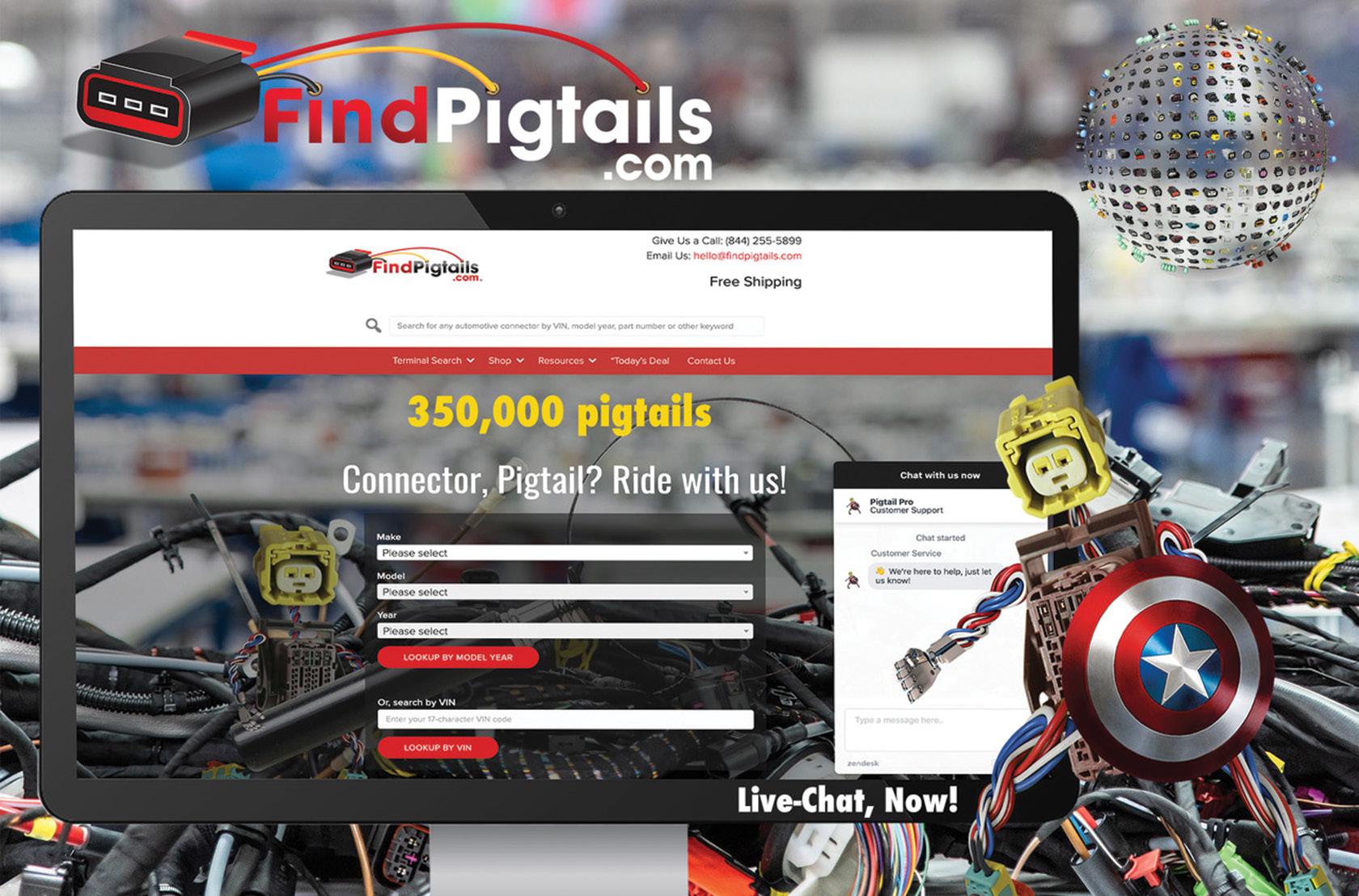





That’s because print advertising works. Especially when it’s connected to a powerful trade association.
For over 30 years, Greco Publishing has partnered with the best of the industry to provide trade associations a voice, and to give advertisers a direct outlet to reach buyers.
Today’s shop is inundated with solicitations; advertising with Greco Publishing breaks through the noise to align your company as an association ally, and get you in front of your next customer.
“Productivity is a byproduct,” Kennedy offers. “You can’t force people to work faster; that’s a result of other changes you’ve made to improve efficiency, and that all comes down to culture. It comes down to training, recognizing individuals’ strengths and creating a better internal experience which then translates to a better experience for your customers. But in order to make those types of changes, a shop has to have the right culture. Without it, functional changes cannot happen.”
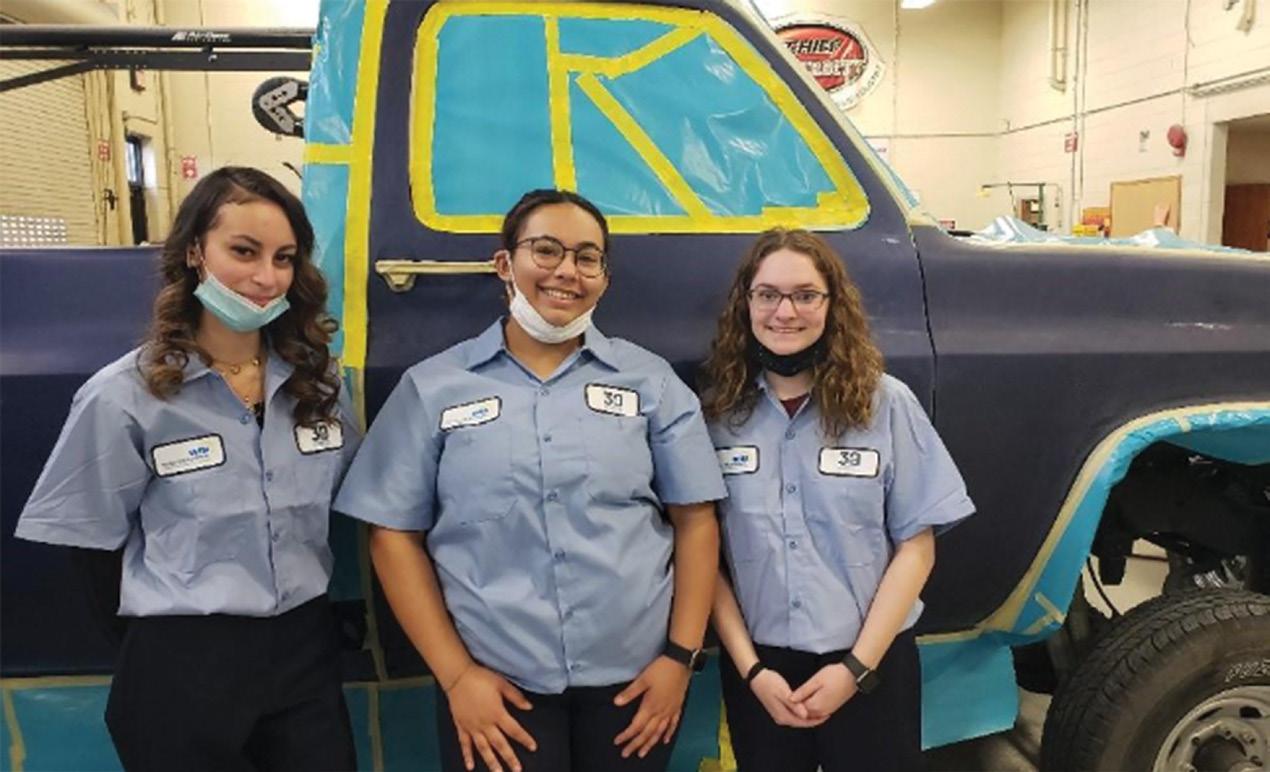
“The customer experience will never rise higher than the level of the employee experience,” Adams shares a quote from famed restaurateur Danny Meyer. He adds his thoughts, “If a shop has customer service index (CSI) issues, I can guarantee they have employee service index (ESI) issues. At the end of the day, if I can achieve something with two people when it takes another shop four people to do the exact same job, you can’t compete against me. This goes back to employee engagement. People will show up and give you their hands, but are you getting their hearts and minds? The path to profit is really pretty simple: ESI + CSI = Profit. And it must come in that order, with employees first.” TXA
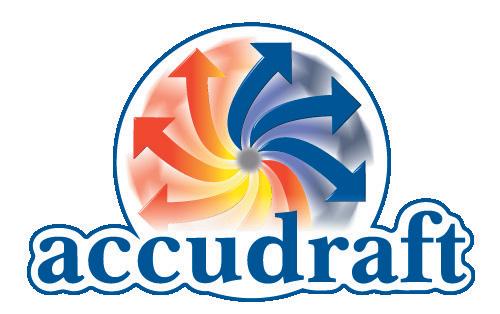
WIN offers education, mentoring and leadership development opportunities to build critical skills for success in the collision repair market.
• Local/Regional Networking Events
• Annual Education Conference
• Educational Webinars
• Mentoring Opportunities
womensindustrynetwork.com
• Scholarship Program
• School Outreach Program
• Most Influential Women (MIW) Award

Designed for high production, the Italia comes with the Timeless Series Direct Drive Air Make Up Unit, completely integrated intake, heat, and exhaust system.
The Italia includes (2) 10hp VFDs, digital PLC control panel, full lower LED lighting package (every wall), and SmartPad digital control panel with EnergySmart Package, which automatically drops to idle when no spraying is detected.
The exterior of Accudraft’s Dual Skin Finishing Equipment is available in FOUR colors:

